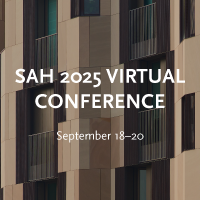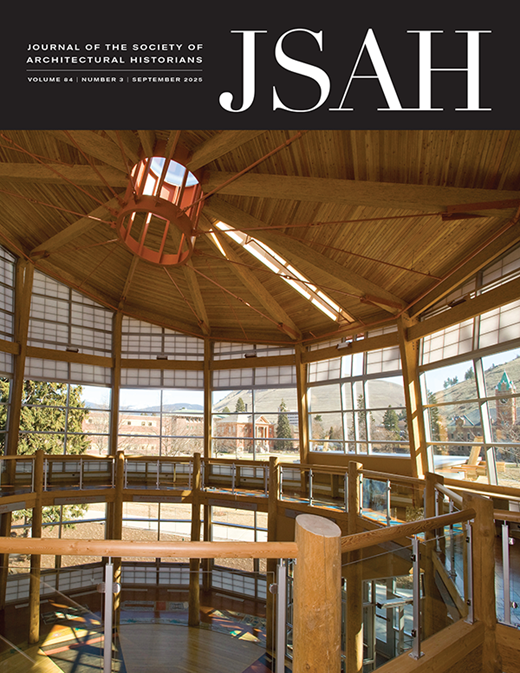CHICAGO, July 9, 2025 — Following the popularity of the in-person professional development workshops held during the SAH Annual Conference in May, the Society of Architectural Historians is expanding its career skills programming to a series of online events for members beginning in August 2025.
Sessions will be developed and led by esteemed scholars and professionals on topics such as writing and publishing research articles, navigating the job market, securing grants and fellowships, thesis writing, book publishing in architectural history, and more. Registration will be open to all SAH members seeking guidance on professional milestones, especially graduate students and early-career professionals, who make up a growing proportion of SAH membership.
Each session will be fully independent of others in the series, requiring no prior knowledge, so that members may attend the online events most relevant to them. The presentations will be recorded and posted online for SAH members to watch on-demand.
The first event, “Journal Paper Writing and Publication” is scheduled for Wednesday, August 6, 11am-12:30pm CDT. Presenters Daniel E. Coslett, Assistant Professor of Architecture at Drexel University, and Heba Mostafa, Assistant Professor of Islamic Art and Architecture at the University of Toronto, will explore the state of publishing in the field, potential venues for publishing success, and perspectives on the process based on their work with several journals and academic presses.
A second event on September 6 will considers Master’s thesis writing through various dimensions — from thesis structure to content and time management. Further events will be announced through the SAH newsletter and website as they are confirmed, with dates expected to run through winter 2026.
This expanded online event series builds on the momentum of successful workshops held during the 78th Annual International Conference in Atlanta, which were attended by more than 100 young and emerging scholars. Conference feedback showed a strong positive reception for professional development programming at SAH.
“[As a] panelist and presenter, I found it to be extremely energizing and uplifting,” one person wrote in their response. “I truly enjoyed sharing my skills and experience, but also it gave me a much better sense of the cross-section of needs within our community… The energy in these sessions was terrific."
“They were great, wish I'd had time to visit more,” wrote one attendee.
“In my opinion, this is an essential function the Society should perform," said another.
SAH members and leaders agree. President Mohammad Gharipour, who proposed the conference workshops and the ongoing programs, sees a growing appetite for professional development.
“In several in-person and online listening sessions with SAH members this spring, we heard again and again that career advancement is an area of concern, and an area where our members want to connect and learn more,” he said.
“In the United States, federal funding cuts to humanities research programs are causing knock-on budget reductions at universities and other institutions where architectural historians work. Our members want to know how to navigate this fast-changing landscape, build skills to stay competitive, and explore alternative career paths.”
“With good reason, academic programs focus on building fundamental knowledge and research skills,” adds SAH Executive Director Ben Thomas. “Very few, if any, offer courses on how to prepare a compelling CV or how to transform your dissertation into a book for a public audience. Offering coaching in such skills is an important way SAH can fulfill its mission to support a strong professional community of architectural historians.”
For up-to-date information about upcoming events, please visit sah.org/programs/professional-development-workshops


